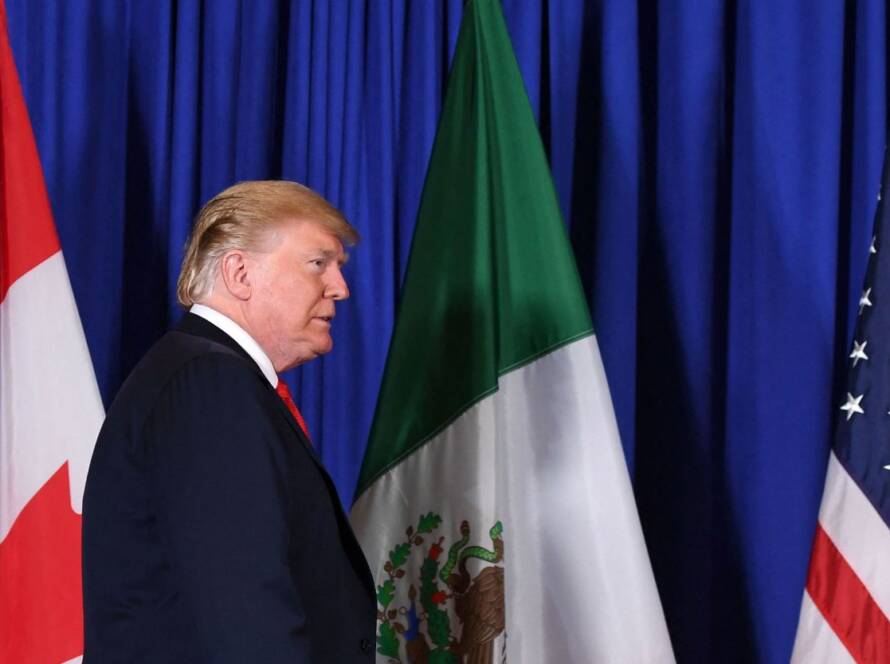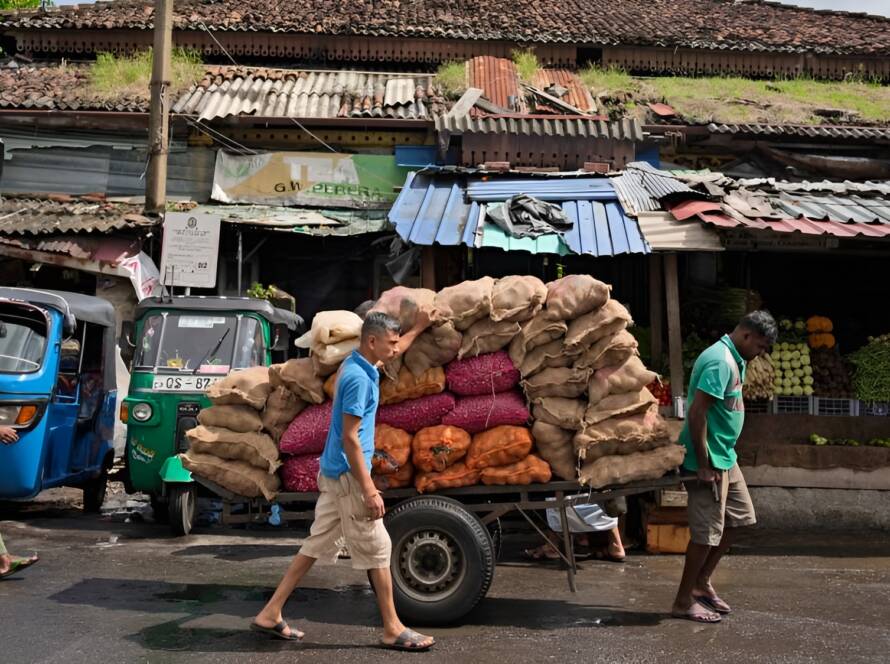By P. K. Balachandran
On September 1, Sri Lanka succeeded in arriving at a staff-level agreement with the IMF for an Extended Fund Facility (EFF) of US$ 2.9 billion, spread over a four-year period. This facility was given following the submission of a credible plan for a thorough reform of the ruined economy by the Ranil Wickremesinghe government in line with IMF’s prescriptions.
But the staff-level agreement is only the beginning of a process to release the fund. The IMF stated in a press release that the staff-level agreement “is subject to the approval by IMF management and the Executive Board in the period ahead, contingent on the implementation by the authorities of prior actions, and on receiving financing assurances from Sri Lanka’s official creditors and making a good faith effort to reach a collaborative agreement with private creditors.”
“Debt relief from Sri Lanka’s creditors and additional financing from multilateral partners will be required to help ensure debt sustainability and close financing gaps.”
The actual realization of the loan will be tied to the willingness of Sri Lanka’s external creditors to take “haircuts” and restructure the terms of repayment in a mutually agreed way. Herein lies the problem. The creditors are a mixed bag of bilateral donors, international funding organizations, and a very large number of private owners of Sri Lanka’s international bonds. Ideally, all of them should agree to a formula based on transparency. It is not an easy task for the two international companies charged with the responsibility to work out such a deal.
Each group of creditors will raise issues. A large section of the creditors are diverse private entities. However, the IMF is flexible in this matter. It has only said that Sri Lanka should “make a good faith effort to reach a collaborative agreement with private creditors.”
Getting financial assurances from Sri Lanka’s official creditors may not be very difficult given the Ranil Wickremesinghe government’s good relationship with the Western creditors and the West-led funding agencies.
But bilateral donors are not on the same page. China says that it is ready to help Sri Lanka at the IMF but it has also said that it is against accepting a haircut. It wants Sri Lanka to take a further loan from it as a refinance facility. Sources said that China will not agree to a haircut as suggested by the West but will offer Sri Lanka, as it did earlier, US$ 1 billion as a fresh loan and a buyers’ credit of another US$ 1.5 billion. China is not expected to budge from this position. China will help Sri Lanka on its own terms not on the terms set by the West, the sources explained.
However, there has been a softening of the Chinese stand after the signing of the staff-level agreement. At a press conference in Beijing the Chinese spokesperson Zhao Lijian said: “China supports relevant financial institutions in consulting with Sri Lanka for proper solutions. We are ready to work with relevant countries and international financial institutions to continue to play a positive role in supporting Sri Lanka’s response to current difficulties and efforts to ease debt burden and realize sustainable development.” Therefore, there is light at the end of the tunnel.
However, it appears that India and the Western world insist on China’s being part of an internationally agreed “haircut” scheme. They also want Chinese loans to be transparent, because in their view, Chinese funding is not transparent. The West has made it clear that they would not allow Sri Lanka to use the concessions they give to pay back loans taken from the Chinese. As to how Sri Lanka will tackle the issues created by China’s obduracy is to be seen.
Sri Lanka has requested Japan to organize an international creditors’ conference, but Japan wants Sri Lanka to do that. Some recent issues Japan had with the Sri Lankan authorities have dampened Tokyo’s enthusiasm to be proactive in saving Sri Lanka from distress. In a written statement given to The Hindu, all that the Japanese embassy said was that it is assessing the situation in Sri Lanka and that Japan will consider appropriate responses in consultation with the Government of Sri Lanka and other donor countries and organizations.
However, again, there has been a softening of the Japanese stand since the signing of the staff level agreement. Japanese Finance Minister Shunichi Suzuki on September 2 urged all creditor nations to discuss Sri Lanka’s debt restructuring. “It’s important for all creditor nations, including China and India, to gather to discuss Sri Lanka’s debt restructuring,” Suzuki told a news conference. One has to keep one’s fingers crossed on China’s attending such a conference.
India’s stand, as stated by the Ministry of External Affairs’ spokesperson Arindam Bagchi, is that New Delhi seeks “creditor equitability and transparency”. This puts New Delhi in opposition to Beijing. Sri Lanka owes to India US$ 960 million, in addition to a credit line of US$ 4 billion given during the current economic crisis.
While it is true that the ball is now in Sri Lanka’s court and not in the IMF’s, the international community too has to change its approach to Sri Lanka, says Sri Lankan economist Professor Sirimal Abeyratne. He told this writer that Sri Lanka’s creditors should realize that the world is closely integrated economically and that geopolitical conflicts will only disrupt economic integration which is vital for the survival of all.
Professor Abeyratne pointed out that the US is tied up with China due to the latter’s investments in US bonds and China is dependent on US technology. Europe is dependent on Russia for energy as much as Russia is dependent on Europe for marketing its energy.
The Sri Lankan economic crisis casts a responsibility on the shoulders of all major countries and it is time they stopped looking at the crisis through the geo-political prism, thus delaying Sri Lanka’s recovery, Professor Abeyratne said.
Domestic Issues
In addition to the problems with external creditors, Sri Lanka has an internal problem of equal gravity. Political opposition to the government is rampant, threatening potential instability. Undoubtedly, the current President, Ranil Wickremesinghe, is firmly in the saddle with assured support from the majority Sri Lanka Podujana Peramuna (SLPP), which is helmed by the Rajapaksas.
Wickremesinghe’s writ runs across the country because of his ability to use the instruments of power. But the opposition and the media consider his Presidency to be lacking in political legitimacy, if not in constitutional legitimacy. Wickremesinghe had not entered parliament as a popularly elected member, but as a nominated one in the National List. He became Prime Minister and President based on support from the SLPP led by the Rajapaksas. Therefore, he is derided for being in power only to shield the Rajapaksas from the law.
Yet his opponents forget that Wickremesinghe had dared to present a growth-oriented interim budget, outlined a liberal reform program and secured the help of the IMF and the West. He has kept a lid on disruptive agitations and brought some economic relief to the common man.
The opposition wants immediate elections which they believe will oust the Ranil-Rajapaksa regime. The recent defection by 13 MPs from the SLPP has stoked hopes of more defections and the fall of the government, though the interim budget presented by Wickremesinghe was passed by parliament with an overwhelming majority. Wickremesinghe’s bid to form an all-party government failed due to obstacles placed by the opposition which did not want have any truck with the Wickremesinghe-Rajapaksa combo.
Elections could be held (albeit at a high cost), but there is no guarantee that a stable government will be formed after the polls, because the opposition is highly fragmented, both ideologically and politically.
If there is no political stability and if the Wickremesinghe government hangs by a thin thread in parliament, and if parliament is also divided, the difficult economic structural reforms sought by the IMF may not take place. The trade unions will become vociferous in opposing any measures to privatize loss-making and inefficient State-run enterprises.
Higher taxation and higher tariffs, suggested by the IMF, will be opposed tooth and nail. And if reforms are abandoned or implemented half-heartedly, it will be a disincentive for creditors to take haircuts or provide further funds. As things stand, Sri Lanka has a hard road ahead in its journey towards economic well-being and growth.
P. K. Balachandran is a freelance journalist based in Colombo writing on South Asian affairs for various news websites and dailies for a number of years. He has reported from Colombo and Chennai for Hindustan Times, New Indian Express and Economist. He has a weekly column in Daily Mirror and Ceylon Today in Sri Lanka.
Factum is an Asia-focused think tank on International Relations, Tech Cooperation and Strategic Communications based in Sri Lanka accessible via www.factum.lk


